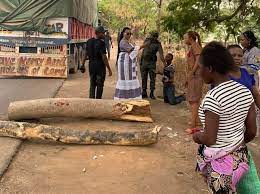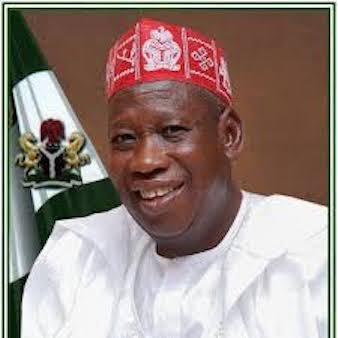Uncategorized
Veritas Kapital Grows Premium by 45% in First Quarter
Veritas Kapital Assurance Plc., on Monday reported that its Gross Premium Written (GPW) grew by 45 per cent, year-on-year to N2.08 billion in its first quarter unaudited financial statement.
Mr Kenneth Egbaran, Chief Executive Officer (CEO) of the insurance company said this in a statement made available in Lagos.
Egbaran stated that the insurer’s net premium income for the quarter under review also increased by 151 per cent to N978.
1 million.He explained that the insurance company also recorded a 43 per cent growth in Profit After Tax from N126.2 million in first quarter 2022 to N181.0 million in first quarter 2023.
The CEO said the underwriting firm grew its Profit Before Tax year–on–year by 10 per cent from N172.
9 million in first quarter 2022 to N190.0 million in the quarter under review.“The group has reported strong financial result and focuses on enhancing shareholders value.
“This was evident, as shareholders’ fund grew from N181.0 million to N12.8 billion, while total assets increased by 9 per cent to N19.0 billion in the first three months of 2023,” he said.
According to him, the company’s positive financial statement was as a result of its commitment to improve its business offerings and deliver seamless customers experience.
Egbaran noted that Veritas Kapital would continue to focus on remaining one of the leading insurance companies in Nigeria and deliver value to all its stakeholders. (NAN)
Uncategorized
Adamawa Govt. Earmarks N55.5 bn as 2024 Supplementary Budget

The Adamawa Government has approved the sum of N55.5 billion as supplementary budget for the 2024 financial year.
Mrs Neido Kofulto, State Commissioner for Information and Strategy said this while briefing newsmen on the development in the late hours of Tuesday in Yola.
She said the supplementary budget was part of the emergency Executive Council Meeting presided over by the state Deputy Governor Prof.
Kaletapwa Farauta.According to her, the supplementary budget is necessitated by the need to capture and finance projects which were not initially captured in the main budget.
“The council resolution on the supplementary estimate will soon be presented to the State House of Assembly for ratification and approval,” she said.
Mr Emmanuel Piridimso, State Commissioner for Budget and Planning said the budget was initiated to finance other additional projects as the State finances had reasonably increased.
According to him, the ministries captured in the supplementary budget are, Ministry of Education, Women Affairs, Commerce and Industries and Works and Energy Development and among others.
The Adamawa government had on Dec. 9, 2023 presented an appropriation estimate of N225.8billion.
(NAN)
Uncategorized
Prominent People are Behind Mounting of Illegal Checkpoints in Benue- Chairman BIRS

From Attah Ede Makurdi
The acting Chairman of Benue State Internal Revenue Services (BIRS), Mr. Emmanuel Agema, on Monday, lamented over the activities of illegal tax collectors in the State, saying prominent people with the State are behind the mounting of those illegal checkpoints across the state.
Mr. Agema who disclosed this while speaking with newsmen in Makurdi, said that not more than 35 persons have been charged to court.
He maintained that upon assumption of office, the board decided to terminated revenue contract with a few to close revenue leakages about and now using the board staff to collect taxes, a development, he said has assisted the board to generate more revenue for the state.
The acting chairman said the State government has giving the board a target to generate over 16 billion as internally generated revenue for 2024, adding that in 2023, the board met its 14 billion target and surpassed it.
Mr. Agena who decried the activities of illegal tax collectors in the State, said most of them are backed by very prominent individuals, averring that under his watch, the era of patronizing politicians is over.
“We have already arrested 35 people who are engaging in illegal tax collection and have been arraigned in court.
He disclosed that a truck conveying palliatives from Adamawa to Anambra State was hijacked by some youths in Aliade, Gwer East local government area of the State
According to him, the youths who mounted illegal checkpoint, stopped the vehicles, broke their windscreen and stole the sum of #200,000 from one of the drivers.
He said two persons have been arrested and transferred to the DSS on the governor’s directives that a thorough investigation be carried out to fish out those behind illegal tax collection in the state
“The truck was intercepted and the driver beaten while the windscreen of the vehicle broken and over 200,000 naira stolen. 3 persons have been arrested and are in police custody. They will be moved to DSS for thorough investigation
“Our aim is to flush out or reduce illegal tax collectors to the barest minimum. This has been a big challenge. We have constituted a team headed by director of Tax collection. Prominent people in the State are involved in encouraging these boys.
“We also plan to recover over 5.6 billion from ground rent. We are liaising with the Ministry of Land towards this direction.
“We also, engaged the service of Softnet, an ICT company to aid us collect revenue. They are paid commission. The company have engaged over 250 staff who have been trained and given POS to collect revenue.
“Taxation is about confidence. Our work now is easy because tax payers are willing to pay because the people are seeing what government is doing”.
Uncategorized
I’m not Desperate for Super Eagles Coaching Job – Emmanuel Amuneke

1996 Olympic gold medalist, Emmanuel Amuneke, has said that although he would love to coach the Super Eagles if given the opportunity, he was not desperate for the job.
Amuneke, a former Super Eagles player, said this while addressing newsmen in Owerri on Tuesday.
The former Nigeria U-17 national team coach and former coach of the Tanzania national team, said the job of coaching Nigeria’s national team should be given on merit and to whom with the interest of football and Nigeria at heart”.
The Spain based former striker, who played for Sporting Lisbon football club in Portugal and Barcelona football club, expressed confidence that the Nigeria Football Federation (NFF) would eventually appoint the ideal coach for the Super Eagles top job.
He said that with a plethora of Nigerian talents scattered across the globe, a lot of professional capacity, technical expertise and consultation would be required to harness the talents, combine them and achieve the needed balance.
“The Super Eagles’ upcoming World Cup qualification matches against the Bafana Bafana of South Africa and their counterparts from Benin Republic would necessitate the appointment of a substantive coach who would also need some time to put the house in order for best results.
“I am not desperate to be Super Eagles coach, though I nurse the ambition to coach.
“If I have the opportunity to serve my fatherland , I will accept it and deliver my all,” he said.
He however, called for the development of football at the grassroots for further development of the Nigerian league for harnessing of more talents. (NAN)



















